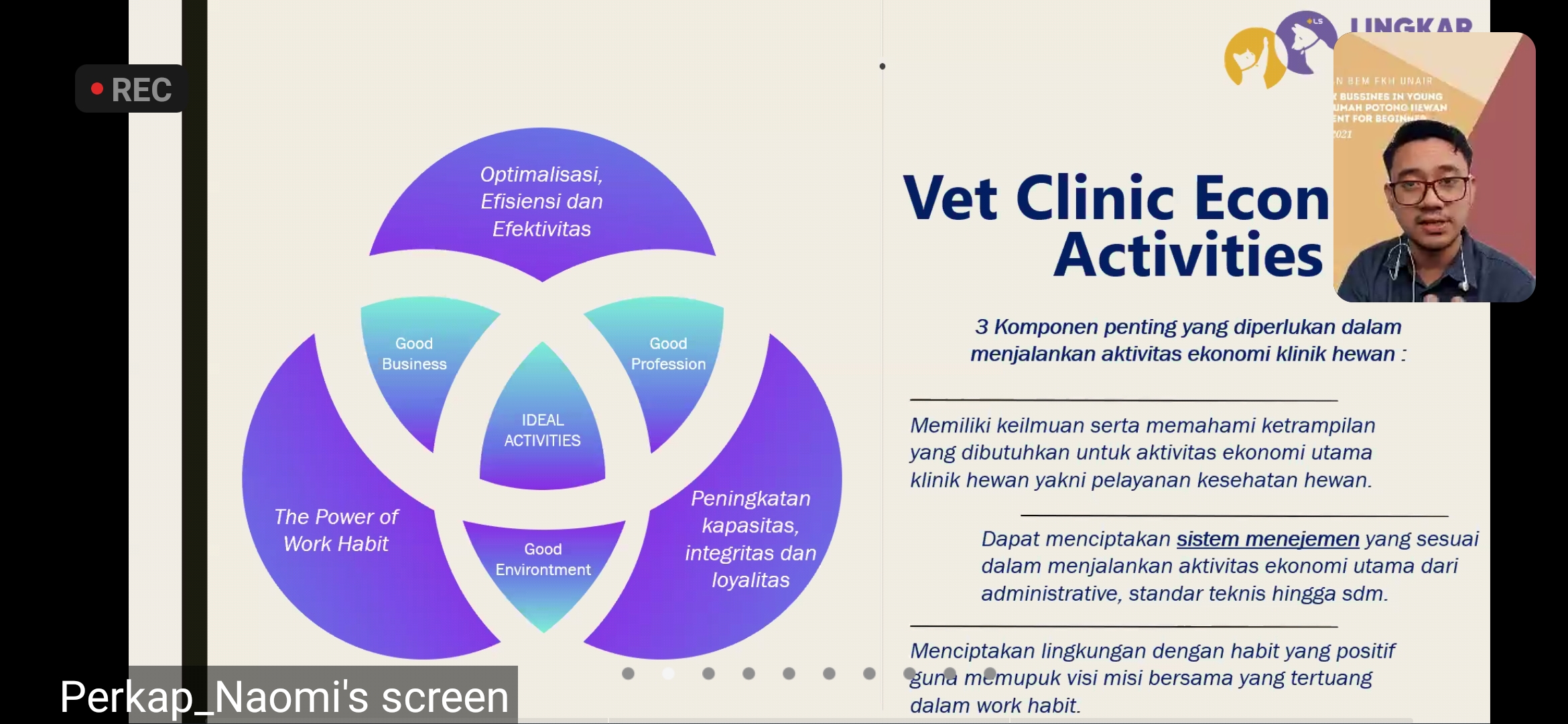UNAIR NEWS – Several important components are needed in running a business in veterinary clinics, including having the knowledge and understanding the skills required for animal health services. Secondly, creating a suitable management system for carrying out economic activities, mainly from administrative, technical standards to human resources, and creating an environment with positive habits to foster a shared vision and mission contained in work habits.
In the Veterinary Entrepreneur Talk, held by Student Executive Board of Faculty of Veterinary Medicine (FKH) UNAIR on May 23, 2021, Sancaka Chasyer Ramandinianto, drh., M.Si., the owner of the Lingkar Satwa Animal Care explained some things need to be considered by beginners who want to start a veterinary clinic business.
Doctor Sancaka said the Lifecycle Business Model consists of several levels: Seed Phase, which is to draft a business idea and choose a partner for implementation. Then the Start Up Phase presents the main product to the market and conducts an evaluation. Next is the Growth and Establishment Phase, which means increasing clients, human resources, and work system automation. Expansion Phase, expansion of product and service coverage, and Maturity Phase or sales stability, profitable and competitive.
“Choosing the right business partner has an ideal 70% proportion of seed phase,” he said.
Another thing that needs to be considered, he continued, is to take various approaches. A resource-based approach or including partners with complementary resources is needed for implementation. A relational-based approach involves partners who have long-term potential as business connectivity in the optimization or development of the business sector.
“A competency-based approach is to involve qualified partners in the main business competencies as QC for the main products or services in business,” said FKH UNAIR alumnus.
The key to starting a veterinary clinic business is understanding regulations. In the Minister of Agriculture Regulation Number 02 / Permentan / OT.140 / 1/2010, there are categories of veterinary medical services, including therapeutic transaction practice (Independent Practice Veterinarian, Joint Practice Veterinarian, Animal Clinic, Animal Hospital, Central Special Animal Hospital / Animal Healthcare Post).
“Animal health consult practice for veterinary medical services, in the category of therapeutic transaction practice, can be followed by ambulatory activities and/or animal health consult visits. It is based on the type of animal handled, such as small animals (dogs and cats), large animals (ruminants, monogastric livestock), laboratory animals, wild animals and zoo animals, aquatic animals, and/or fowl and commodity animals,” he said.
One of the classic weaknesses of most conventional clinical vets is poor administrative management, from letters to medical record history. There is a significant advancement in the digitalization of management. Business progress indicators, overall evaluation, and development planning can be determined when a veterinary clinic business is started.
“At the end, I advise, when scientific professionalism and professional skills meet business understanding, there will certainly be a wide gap, but if the gap is bridged properly and ideally, it will become an unlimited source of value,” he concluded. (*)
Author: Muhammad Suryadiningrat
Editor: Nuri Hermawan





